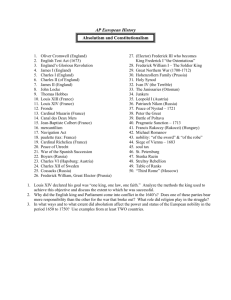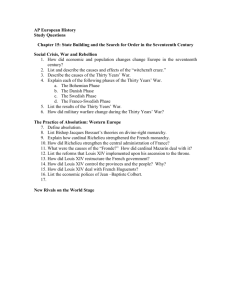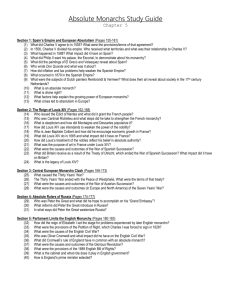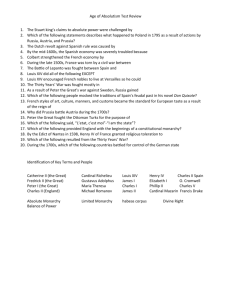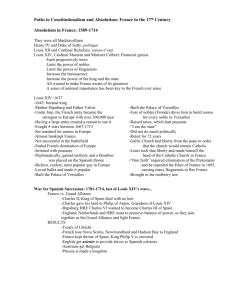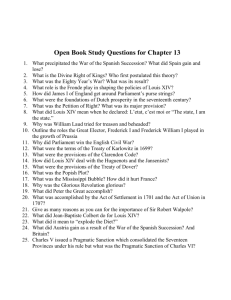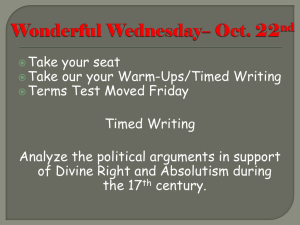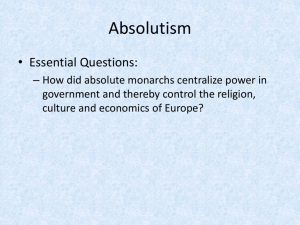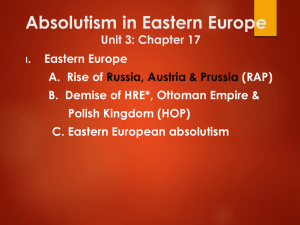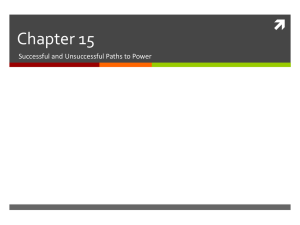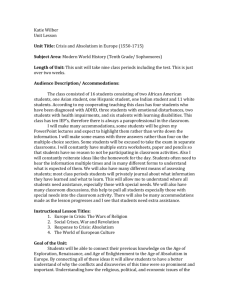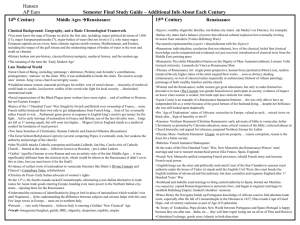Chapter 13 Reading Guide
advertisement
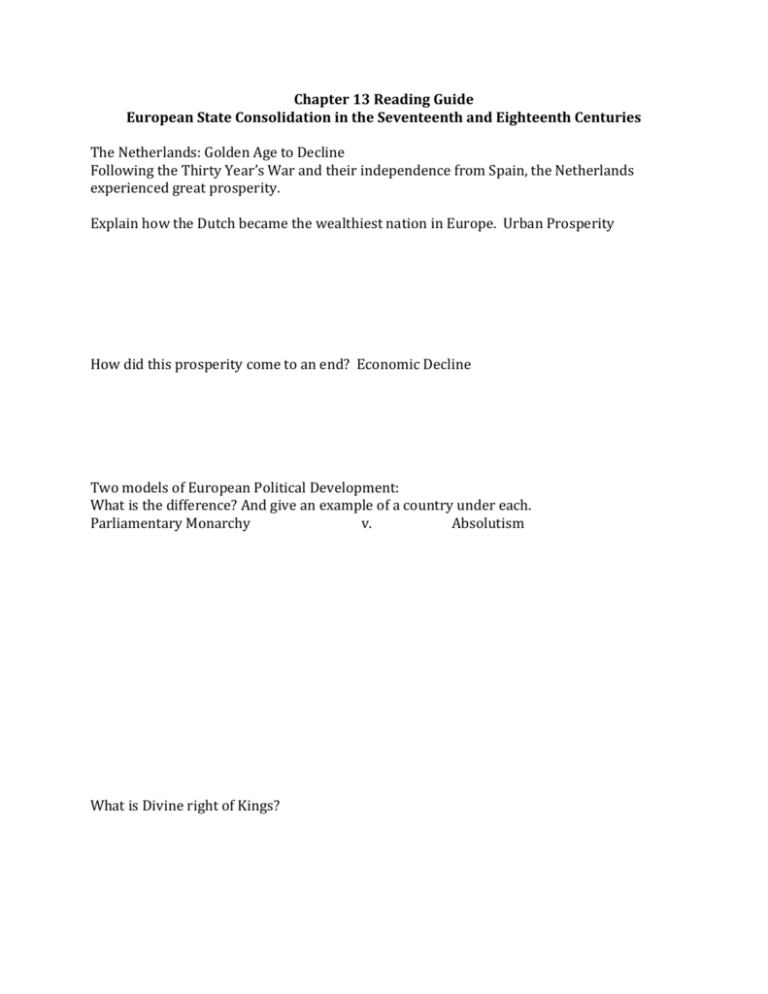
Chapter 13 Reading Guide European State Consolidation in the Seventeenth and Eighteenth Centuries The Netherlands: Golden Age to Decline Following the Thirty Year’s War and their independence from Spain, the Netherlands experienced great prosperity. Explain how the Dutch became the wealthiest nation in Europe. Urban Prosperity How did this prosperity come to an end? Economic Decline Two models of European Political Development: What is the difference? And give an example of a country under each. Parliamentary Monarchy v. Absolutism What is Divine right of Kings? Constitutional Crisis and Settlement in Stuart England What happened between James I and the Puritans? What is the Hampton Court Conference? Why was James I court the center of scandal and corruption? Read the Controversy over tobacco and smoking on page 384 and answer the two bold faced questions in the space below. Charles I had problems with Parliament. Explain what he did to ensure his rule. What caused the English Civil War under Charles I rule? Who is Oliver Cromwell? What religion did he support and how is that important? What did he do that was so significant? Briefly describe Charles II’s rule of England… What is the Clarendon Code? What was the Treaty of Dover? What was the Declaration of Indulgence? How did James II’s rule give way to the “Glorious Revolution”? What happened? Who was involved? The Rise of Absolute Monarchy in France What was interesting about the French Monarchy between 1585-1661? Who is Cardinal Richelieu? What are Frondes? Describe Louis XIV’s rule? What was his nickname and why? Did he make use of parlements? What is a “King by Divine Right?” What is so special about Versailles? What wars did Louis XIV involve France in? How did Louis XIV demonstrate his religious conformity? What is Jansenism? Discuss the Revocation of the Edict of Nantes? Why did Louis XIV revoke this proclamation? How did the Spanish War of Succession play into Louis’ rule of France? What happened after Louis XIV’s rule that was of significance? Who is John Law? And what is the Mississippi Bubble? Central and Eastern Europe Strongest Dynasties: Austria- Habsburg Prussia- Hohenzollern (N. German states) Russia- Romanov Why was Poland so weak? What happened to Poland? Following the Thirty Year’s War, what territories did the Austrian Habsburg gain? What was the Pragmatic Sanction and why was it so significant for that time period? Where is Prussia? When did Prussia start to gain more land (more power)? Who is Frederick William? What was his nickname and why? Who are the Junkers? Frederick William’s son, Frederick II, went on to do something very significant—What? Russia Enters the European Political Arena How did Peter the Great come to power? What were his interactions with other European Monarchs? Who are the boyars? What was the Streltsy? What was Peter’s contribution to the navy? to trade? How was Russia affected by the Thirty Year’s War? Did they gain anything? What was the deal with Peter’s son? What was Peter’s relationship with the nobility like? With the church? The Ottoman Empire What is the Ottoman Empire? Regarding religious toleration, how did the Ottoman Empire compare to European countries? What are millets? Who are dhimmis? What are the Ulama, and how were they involved in the ruling of the Ottoman Empire? What factors led to the end of Ottoman expansion? How do you think the Ottoman Empire will fair against the Habsburg or the Russians? FRQ: While the Monarchs of central and Eastern Europe tried to imitate Louis XIV’s absolutism, they were forced to modify the French model. How and why did this modification take place? How successful was this modification? Absolutism in Eastern Europe was built in large part on the social and economic structures that had emerged by the seventeenth century. What were these structures, and how did their evolution affect the development of absolutism in Eastern Europe? “War- whether civil, international or both- or the threat of war is critical to the emergence and development of absolutism.” Assess the validity of this quotation in relationship to the history of absolutism in Austria, Prussia, and Russia. “Peter the Great’s reforms were driven primarily by military exigencies, not by any special attachment to the culture of Western Europe.” Make an argument for this statement. Answer Questions 1-20 on the back:

